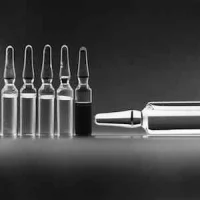Breast, colorectal and lung cancers may respond to a less-toxic class of drugs as well as they do to chemotherapy when the drugs are used in combination with fasting. The results of two new studies in mice, conducted by a multinational collaboration of researchers, have been published in the March 30 issue of Oncotarget.
Starving Cancer Cells
"Like every other cell, cancer cells need energy to survive and keep growing. But cancer cells are fairly inflexible about how they produce that energy, which gives us a way to target them," said senior author Valter Longo, the Edna M. Jones Professor of Biogerontology at the USC Davis School of Gerontology and director of the USC Longevity Institute. Longo collaborated with the laboratories of Alessio Nencioni at the University of Genova and Lizzia Raffaghello at Italy’s G. Gaslini Institute.
There are already human trials in Europe and the US that study the safety and effectiveness of cyclic fasting during cancer treatment. Chemotherapy and fasting together have been shown to kill cancer cells, since the cells rely on glucose and use more of it than regular cells to rapidly grow. They are thus more vulnerable to an interruption in the body’s energy supply from food.
Kinase Inhibitors: An Alternative To Chemotherapy
When cancer cells are deprived of glucose, they rely on an enzyme called a kinase to serve as a back-up generator for the energy required to grow. Longo and his colleagues discovered that such a shift in the metabolism of cancer cells leads them to produce free radicals, which are toxic and can kill the cells. The kinase pathway itself can also be blocked by kinase inhibitors, a class of drugs already approved by the US Food and Drug Administration (FDA) for use in cancer treatment.
The latest research in mice is important because it could be that the one-two punch offered by fasting and kinase inhibitors will serve as an alternative to chemotherapy. Fasting makes the less toxic drugs more effective, which means that therapy times could be lessened for patients.
“Although we have not yet tested this, we anticipate that fasting will also reduce the toxicity of kinase inhibitors as it reduces that of chemotherapy to normal cells,” Longo said. The phenomenon of cancer cells’ relatively greater need for energy for rapid reproduction is referred to the Warburg effect, first described nearly a century ago by a German physician. The anti-Warburg effect induced by fasting represents a promising direction for future cancer research.
Source: University of Southern California
Image Credit: Wikimedia Commons










